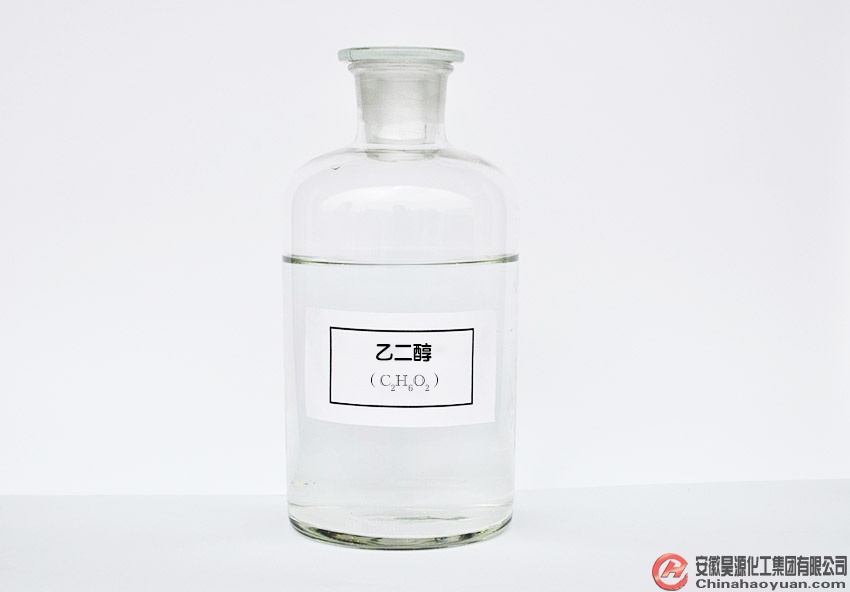
Ethylene glycol is also known as "glycol", "1,2-ethylene glycol", or EG for short. The chemical formula is (CH2OH) 2, which is the simplest diol. Ethylene glycol is a colorless, odorless and sweet liquid, which is toxic to animals. The lethal dose to humans is about 1.6 g/kg. Ethylene glycol can be mutually soluble with water and acetone, but its solubility in ether is small. Used as solvent, antifreeze and raw material of synthetic polyester. Polyethylene glycol (PEG), a polymer of ethylene glycol, is a phase transfer catalyst and also used for cell fusion; Its nitrate is a kind of explosive.
Appearance and properties: colorless, odorless, sweet, viscous liquid. PH: neutral under normal temperature 7
Melting point (℃): - 13.2 Relative density (water=1): 1.11
Boiling point (℃): 197.5 Relative steam density (air=1): 2.14
Molecular formula: C2H6O2
Molecular weight: 62.07
Saturated vapor pressure of pure product (kPa): 6.21 (20 ℃) Combustion heat (kJ/mol): 281.9
Critical temperature (℃): 372 ℃ Critical pressure (MPa): 7699KPa
Flash point (℃): 110 ℃ Upper explosive limit% (V/V): 15.3
Ignition temperature (℃): 418 ℃
Solubility: It is miscible with water/ethanol/acetone/glyceryl pyridine acetate, slightly soluble in ether, insoluble in petroleum hydrocarbons and oils, and can dissolve other inorganic substances.
Main applications: It is mainly used for making polyester polyester, polyester resin, moisture absorbent, plasticizer, surfactant, synthetic fiber, cosmetics and explosives, as well as solvent for dyes, inks, etc., antifreeze for preparing engines, gas dehydrating agent, resin manufacturing, and as a wetting agent for glass paper, fiber, leather and adhesives. It can produce synthetic resin PET, fiber grade PET, that is, polyester fiber, and bottle slice grade PET for making mineral water bottles. It can also produce alkyd resin, glyoxal, etc., and also be used as antifreeze. In addition to being used as antifreeze for automobiles, it is also used for the transportation of industrial cooling capacity, commonly known as the refrigerant carrier. At the same time, it can also be used as a condensate like water.
Transportation: There is no ethylene glycol in the List of Dangerous Chemicals, but it is a flammable and low toxic general chemical. It is generally transported by ordinary goods and Class 3 dangerous goods in tank cars.
